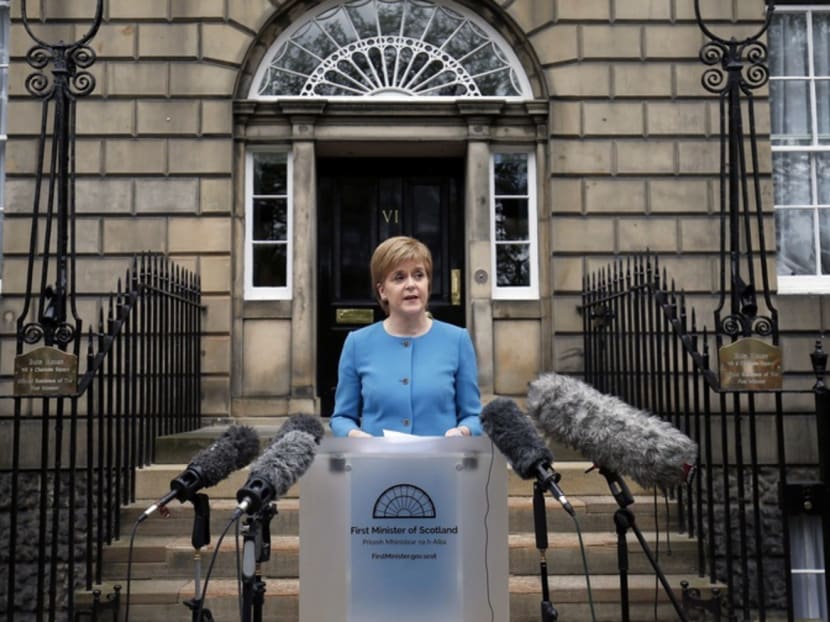Brexit shows downside of opinion polls, referendums
Just before the June 23 Brexit referendum, opinion polls showed that the Remain camp was leading slightly.

Scottish First Minister Nicola Sturgeon speaking outside Edinburgh’s Bute House, where she said she hopes Scotland can remain in the EU despite Britain’s vote. Policymakers in the affected states should rescue a sub-optimal decision, rather than letting it be. Photo: AP
Just before the June 23 Brexit referendum, opinion polls showed that the Remain camp was leading slightly.
Hence, the market meltdown was more extensive and worse than expected, since the outcome was not anticipated (“Pound nosedives to all-time low versus Singdollar”; June 28).
Sometimes, opinion polls can have the opposite result. Perhaps when they show one outcome, some people may then vote for the other outcome as part of reverse psychology, even if the first outcome is rationally superior.
This is a rationale for not publishing opinion poll results before a vote, to minimise the chance of influence. Perception can sometimes differ from reality.
It is also not surprising that some Britons regret voting to leave the European Union (EU) and now want a chance to re-vote, especially as the reality of the economic impact sinks in and outstrips their impulse for greater independence.
Nonetheless, the United Kingdom is not out of the EU forever. Perhaps sooner than later, there will be another referendum for the UK to return, which many in the world may hope for, to see the gloom over the global economy being lifted.
Then again, if that referendum occurs, on whose terms would it be? The EU would want to signal to remaining members not to trifle with such a major decision. They would learn, at the UK’s expense.
To most investors and economists, Brexit was never a rational decision, but every choice has an opportunity cost. Perhaps decisions that could have worldwide implications are best not left to liberal democracies, as individual self-interest may triumph or rule over the wider good.
There are ways to mitigate market failure, such as transfers to help the losers when there are more gainers overall. We cannot have a situation, however, in which everyone wins.
The means to achieve a more sovereign end for the UK should not end with the rest of world being worse off. I hope top policymakers in the affected states can rescue a sub-optimal decision, rather than letting it be.






